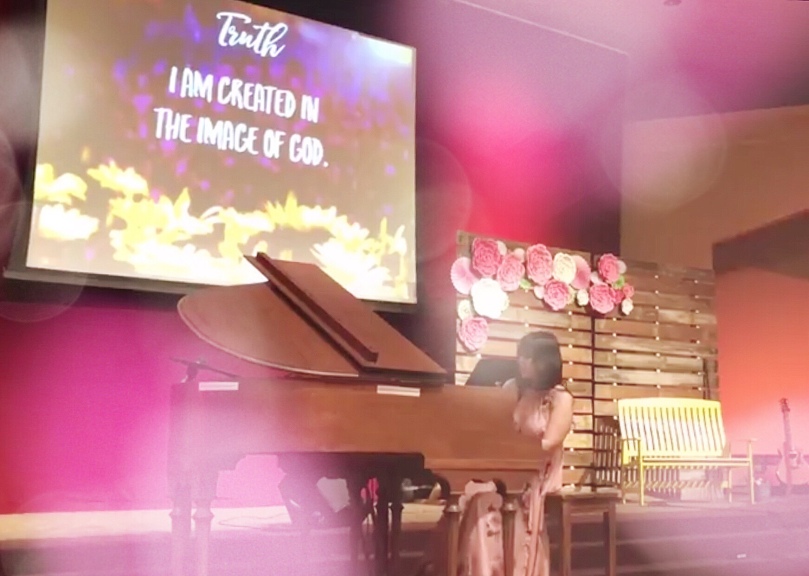
I have a confession to make: I went to Bible college, I have a master’s degree, my husband’s in seminary and I read the books assigned for his classes…and I don’t have all the answers.
And you know what? There are topics in which the more I research and the deeper I dig into what the Bible says, the more questions I have and the more nebulous my stance becomes. Does this mean my theology is shaky? Absolutely not!
In the Christian faith, there are non-negotiables:
- There is only One God.
- Jesus is fully God and fully man.
- It is only through Jesus and because of His death and resurrection we can be saved.
There are more non-negotiables, but I think you get the idea. If you call yourself a Christian—regardless of your particular flavor of Christianity—these are not gray issues. There are things all Christians can all agree on. And when it comes to non-negotiables, I’m confident that I’m prepared to give an answer for the the hope that I have (1 Peter 3:15).
But there are other topics that are a bit more, um, controversial. I’m not taking a relativistic stance and saying there’s no right and wrong, but some things aren’t as simple as we’d like them to be. I won’t name any of them here because my goal at this moment isn’t to debate any issues; it’s to challenge how we deal with them. We need to rethink how we wrestle with tough issues in our minds and hearts before we ever discuss them in conversation, and especially before we type our thoughts on social media.
Many people base their opinions on the ideologies of political parties, denominational affiliations, or any other sort of shared-commonality group. I’m not trying to disparage any of these, but it’s so easy to turn our brains on auto-pilot and start believing things just because someone in our circle said that’s how we should believe. This is intellectual laziness. We need to diligently test and evaluate everything we hear (1 These 5:21).
Some people’s opinions are based on problems they have with the vocal portion of the people who sit on the other side of the issue. It’s important to remember that the most vocal do not represent everyone. Tough issues represent a wide spectrum of beliefs and opinions. In fact, I’ve often found individuals “on the other side” that I agree with more than with those on “my side of the table.”
I wish we could get rid of “sides” all together and begin looking at issues as real people with faces and hearts. Until you take the time to get to know a person, you don’t know the things they’ve experienced that have shaped how they believe. I’m not saying that if you get to know their story you’ll change what you believe, but maybe the nuances of your stance will change. And oftentimes it’s those nuances that make the difference from us being perceived as “angry Christians” to becoming the salt and light of the world. But more on that later. I’m getting ahead of myself.
There are also those who have a stance on an issue but later change it because “It’s the 21st century,” or, “It’s [insert whatever year it is].” These are not good enough reasons to alter our theology or doctrines; we shouldn’t change what we believe just to keep up with the culture. At the same time, current events have a way of bringing to light misinterpretations and misapplications of scripture. And when these issues come to light, it’s an opportunity for the Church to stop fighting to defend “the way it’s always been,” and start humbly seeking “the way it was meant to be.”This is what living as citizens of the Kingdom of God looks like.
“Don’t copy the behavior and customs of this world, but let God transform you into a new person by changing the way you think.”
So how do we allow God to transform our minds and start looking at tough issues as citizens of the Kingdom of God?
keeping a high view of Scripture + listening to the voice of the Holy Spirit.
Keeping A High View of Scripture
Now, I’m going to say something that might sting a bit, but hear me out. Some people say they have a high view of Scripture, but when you listen closely to the words they say, it sounds more like they have a high view of their interpretation and opinions of what scripture says. This isn’t the same as a high view of scripture.
A person with a high view of scripture is someone who never stops studying, digging deep, and doing the work of theology.
What’s the point of regularly reading scripture if we don’t allow it to transform our lives? This transformation is for our words, actions, thoughts, and even our opinions. Because we’re fallible humans, we must ask ourselves, Do I have a higher view of scripture or of my opinions about scripture? This is an internal battle we must fight again and again, and as we do, we must realize that we can’t do it alone.
Listening to the Voice of the Holy Spirit
Humans get things wrong. We need the Helper, the Holy Spirit to guide us and give us wisdom as we wade through difficult issues.
Before moving on, let me be clear: God does not change and His voice will not contradict scripture. He can, however, contradict our interpretation of scripture, and this is where we need to have an open mind and heart.
I’ve learned some things over the years:
- The Holy Spirit can speak to me.
- Just because the Holy Spirit speaks to me doesn’t mean He tells me everything. It’s okay for me to not have all the answers. He’s God and I’m not.
- The Holy Spirit can speak to someone else.
- When the Holy Spirit speaks to someone else, He doesn’t have to tell me what He tells them. Again, He’s God and I’m not.
Keeping a high view of scripture and listening to the voice of the Holy Spirit are important responsibilities for citizens of the Kingdom of God. Here’s the thing: tough issues matter only because the people they represent matter. And people are complicated and messy. So if we stop at what we think and believe, then we’re not taking it far enough.
What do people need?
“By their fruit you will recognize them. Do people pick grapes from thornbushes, or figs from thistles? Likewise, every good tree bears good fruit, but a bad tree bears bad fruit. A good tree cannot bear bad fruit, and a bad tree cannot bear good fruit. Every tree that does not bear good fruit is cut down and thrown into the fire. Thus, by their fruit you will recognize them.”
“…for a tree is recognized by its fruit.”
The thing that marks us as Jesus followers—the salt and light kind and not the “angry Christian” kind that makes people want to run in the opposite direction—is the fruit we produce. I’m not just talking about results; I’m also talking about the fruit of the Spirit flourishing in our emotions, words, and actions.
“But the fruit of the Spirit is love, joy, peace, patience, kindness, goodness, faithfulness, gentleness, self-control; against such things there is no law.”
If we want to change the world, then we need to be less concerned with having all the right answers and more concerned with bearing good fruit in our lives. Don’t forsake study and the work of theology, but do it in order to continuously produce good fruit. Good fruit is what builds the Kingdom of God.
When people are processing and trying to figure out where they stand on tough issues, let’s show them grace (Jude 22). God is patient with us; let’s be patient with them. And instead of tearing them down, let’s come alongside them as they find their way.
And when we disagree, let’s not fight the wrong fight. There’s evil in the world—very real evil—and we should fight it. But we must remember that we’re not fighting against flesh and blood. Our fight is not against people; it is for people—people made in the image of God, people Jesus loves so much He died on a cross for them, people God compels us to love.
Fighting evil and loving people is complicated. How do we do both in the face of injustice? I don’t have all the answers. But I’m becoming increasingly aware that the world needs good fruit more than it needs my right answers.
One last thing: There’s a big difference between discussing a tough issue in theoretical terms and looking into the eyes of a person sitting in your living room as they tell you their story, experiences, and struggles. We must wrestle with tough issues, not for the fun of debate, but because at the heart of them are real people whose lives hang in the balance.





